An inside look into how the Imperial senator’s secret life as a rebel was revealed on screen.
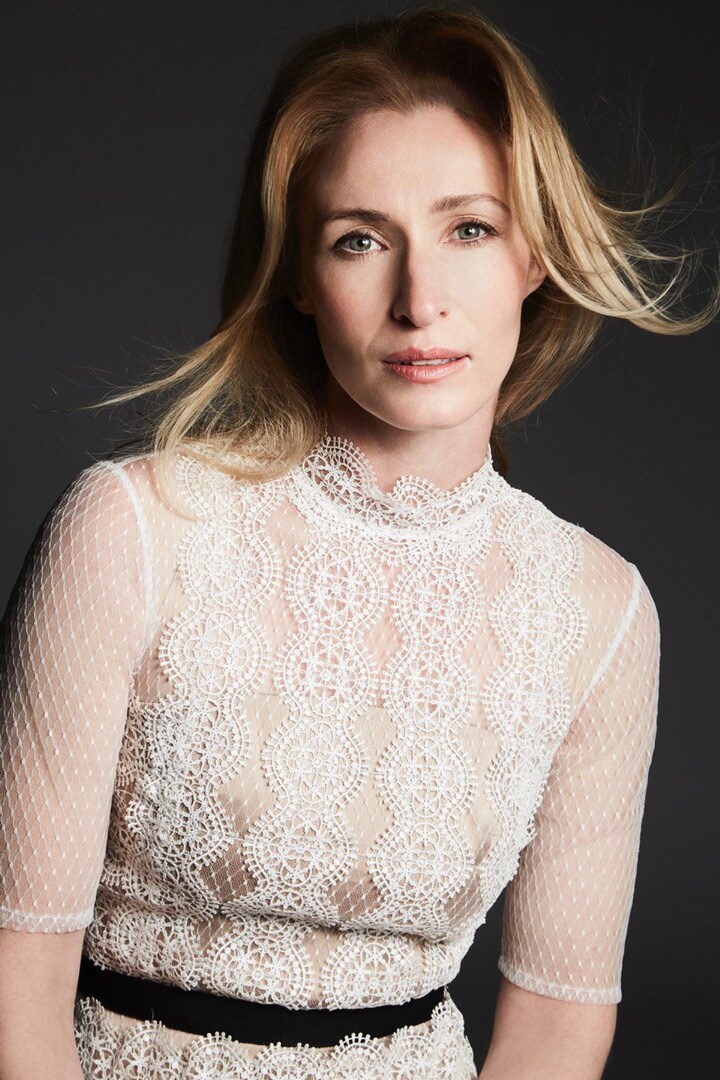
After playing her for more than two decades, Genevieve O’Reilly knows Mon Mothma better than anyone. That expertise shows through in her nuanced portrayal of the rebel senator in Andor Season 2. And much like her character, behind the scenes, O’Reilly advocated for what she felt was right when it came to two of Mothma’s most significant story moments this season, working with creator and executive producer Tony Gilroy to ensure viewers saw the intimate pain of Mothma’s personal sacrifice and the public pronouncement of her declaration of war against Emperor Palpatine, both in their full glory.
An emotionally fraught wedding at the start of the season and Mon Mothma’s epic final speech in the Imperial Senate chamber in the latest episode took center stage in Andor Season 2. Now with the final three episodes arriving next week to mark the series finale, Genevieve O’Reilly speaks with StarWars.com about returning to play Mon Mothma during some of the most challenging and dangerous moments of her life.
“I’ve never done anything like that before,” O’Reilly says about the structure of Andor’s second season. “Each three episodes jumping a year, almost like a window into life for a day or weekend. A slice of life.”
At the end of Andor’s first season Mon had agreed to arrange a betrothal ceremony between her daughter Leida and the shady Chandrilan banker Davo Sculdun’s son, in exchange for Davo’s help to hide her financial transgressions. “We understand that that's very complicated and she's living with a lot of conflict around that,” said O’Reilly. “We also know that it allows us a window into how vital the rebellion is for her, the fact that she would cross that line. I felt sick with complication for Mon Mothma the woman. And Mon Mothma the rebel. And what you have to navigate and swallow.”
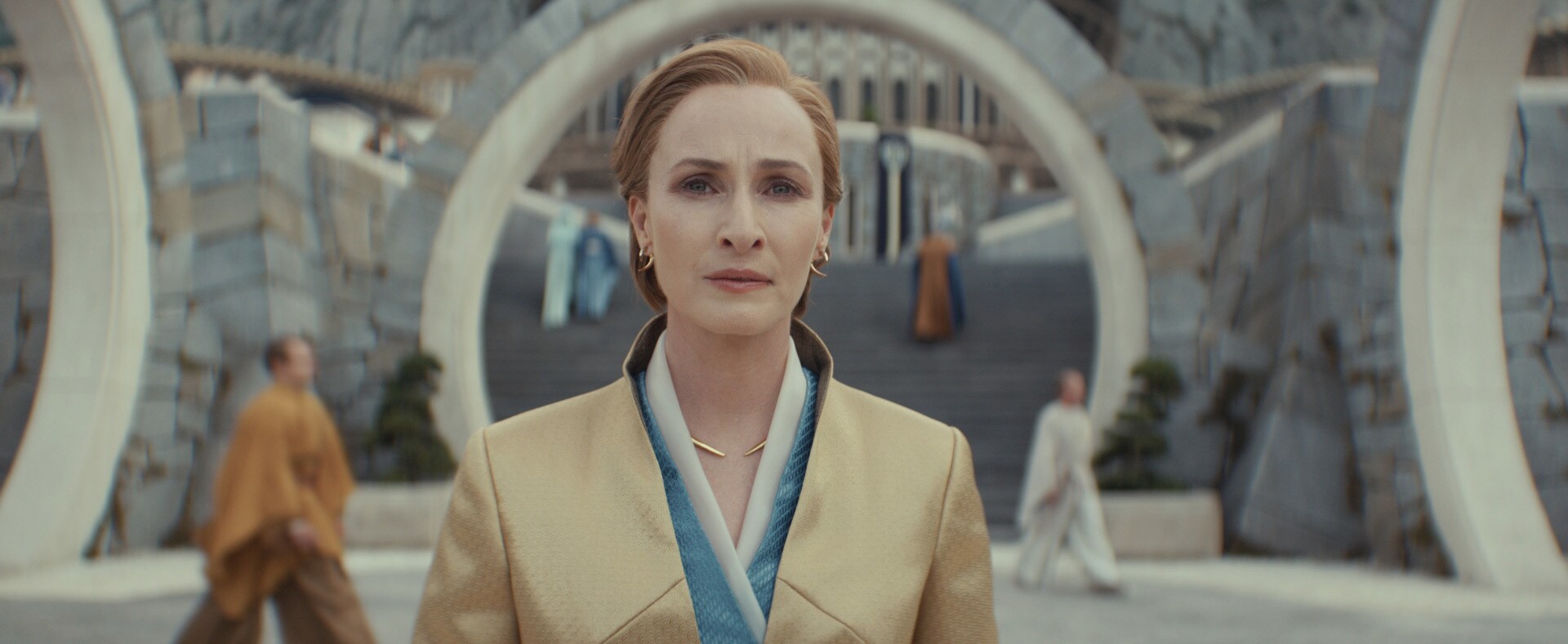
Evolution of a rebel leader
During Andor’s second season premiere, Mon did her best to not show the cracks forming amid the tension she felt from her daughter’s upcoming wedding. It’s hard enough having to host a high profile event even if you’re not leading a secret double life and must be seen by the hundreds of guests at the family’s lavish Chandrilan estate. O’Reilly described the wedding scenes as “a window into someone else’s marriage — dysfunctional marriage — that is also beautiful and ornate. Like glass you know is going to break any minute.”
In these scenes, Mon also juggled evolving relationships with her childhood friend, Tay Kolma, who has been simmering with bitterness over the risks he has taken on Mon’s behalf; Luthen Rael, who makes an unexpected appearance to deliver a wedding gift; and her cousin Vel, who joins in the family festivities despite her own misgivings about the traditions. Mon’s dual existence has never been more on display, a precarious position for all involved.
“I think she’s really good at keeping the personal and hiding that,” said O’Reilly. “She wears armor, clearly. There are moments I think where you really recognize a family wedding, and then you realize by the end that it has been some sort of fresh hell for this woman. And there are things that happen that are so complicated and awful and they reverberate from Mon Mothma through the rest of the season. There is joy, there is laughter, there is all that familial ecstasy that is a wedding and then there is in an emotional place where she is the inverse of that, where she's wrestling with some very dark personal choices. I think part of her heart will have atrophied after that wedding.”
An important aspect to the wedding sequence for O’Reilly was taking time for a moment between mother and daughter where Mon gave Leida the chance to back out of, or at least postpone, the wedding. Even though Leida had a complicated relationship with her mother and may not have shared her mother’s politics, O’Reilly knew that the character still deeply loved her daughter.
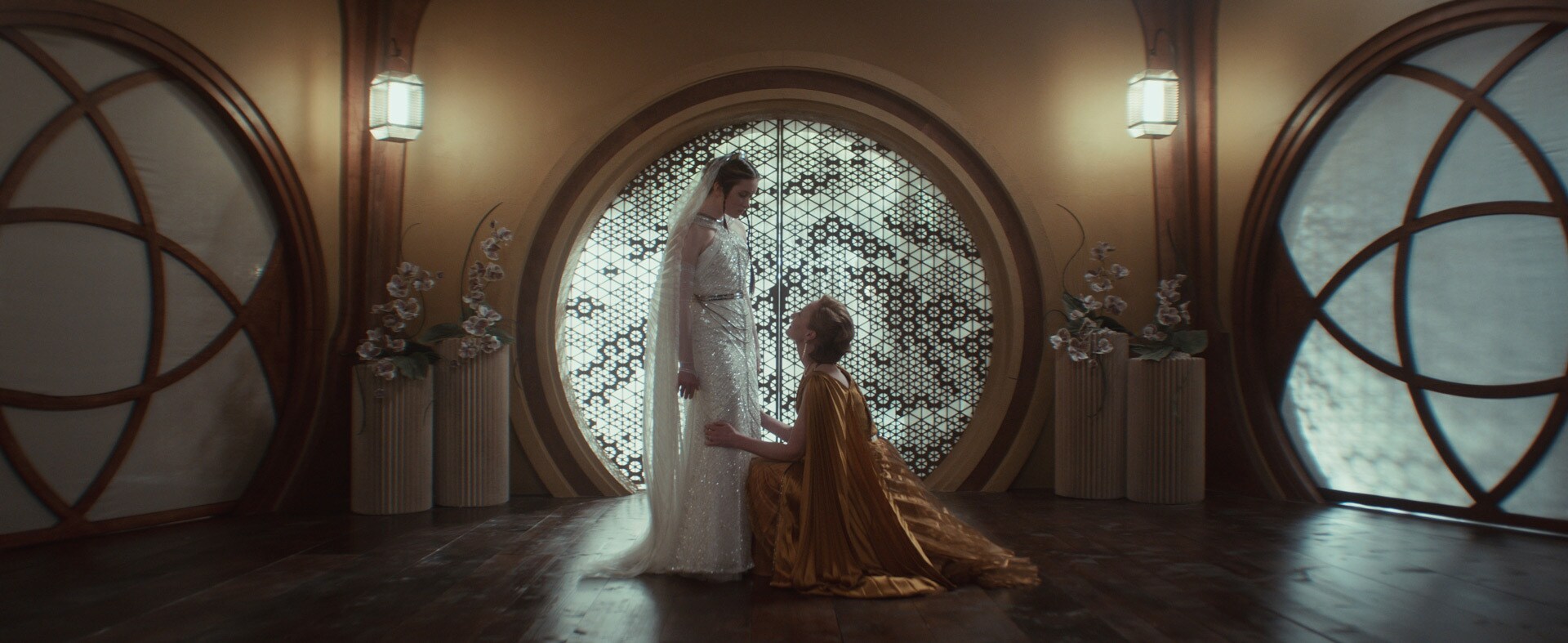
“And of course Tony writes it and in the most dramatic moment possible the morning of the wedding when she gives her that out,” notes O’Reilly. “And then what Leida does, to annihilate Mon in that moment… I thought that was really brave writing to really upend that scene and then in the very next moment Mon uses her stature to say, ‘No, you've to stand behind me.’ It's quite extraordinary.”
A sequence with Mon dancing during the wedding reception was notable to O’Reilly as an instance where something expected — a mother dancing at her daughter’s wedding — had a more complex meaning to the character and what she is going through emotionally at that moment. “It’s not just dancing. There is something deep and dark within the dance for her. And that was a joy to play that day. To play with that. To discover pain and complexity within a Chandrilan rave,” O’Reilly adds with a laugh.
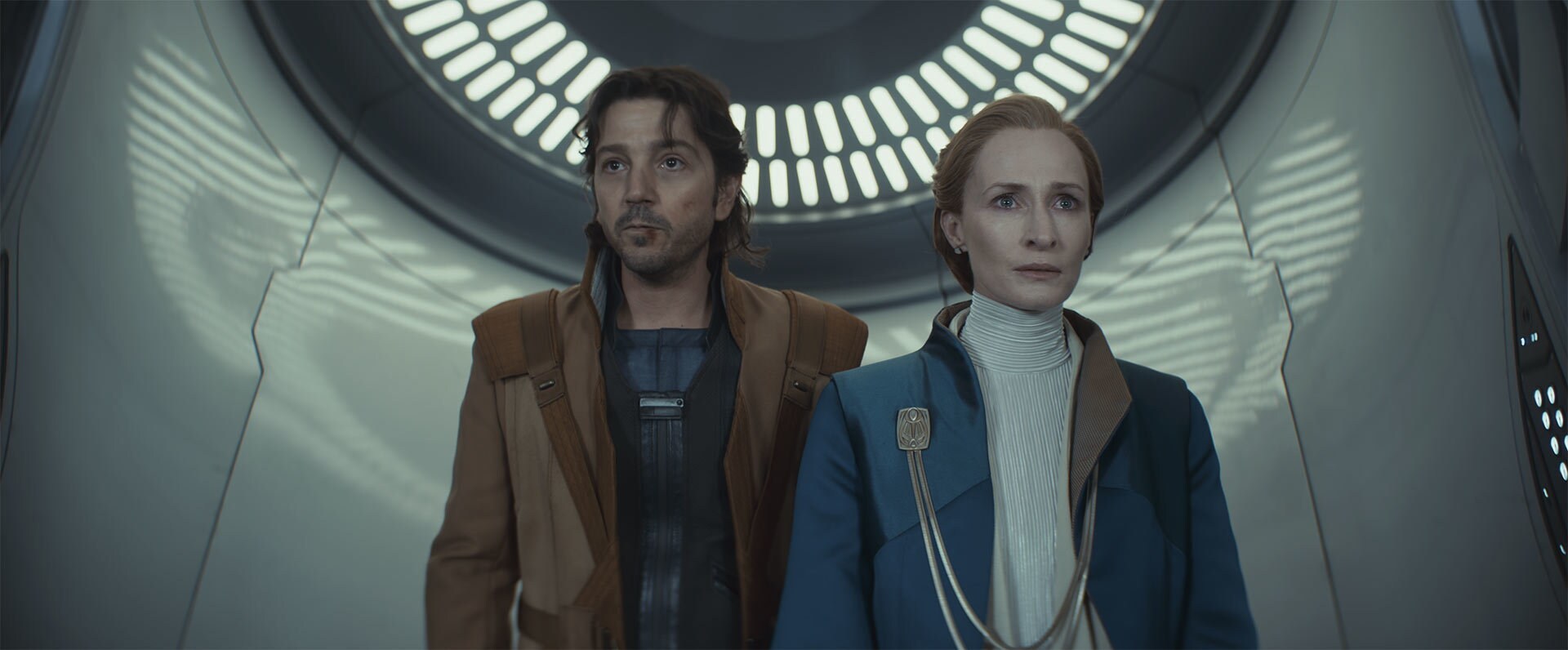
Senator on the run
The latest episodes in Andor’s second season focus on Mon’s break with the Imperial Senate. “Within the senate Mon is becoming lonelier,” notes O’Reilly. “She has few allies. Palpatine’s power and grip on the senate is undeniable. She is isolated. And she's in danger. The rebellion as we move through the series is growing because we are becoming more successful. We also, like most things, become divided, fractured. And with fracture comes confusion. So nothing is as it seems.”
Mon’s speech in episode nine was a focal point for O’Reilly as it gave her character a voice as a woman, politician, and as a leader. O’Reilly felt that she and Gilroy both wanted the political narrative to feel rooted and real for the character as Mothma made a speech to the senate after the Imperial massacre at Ghorman.
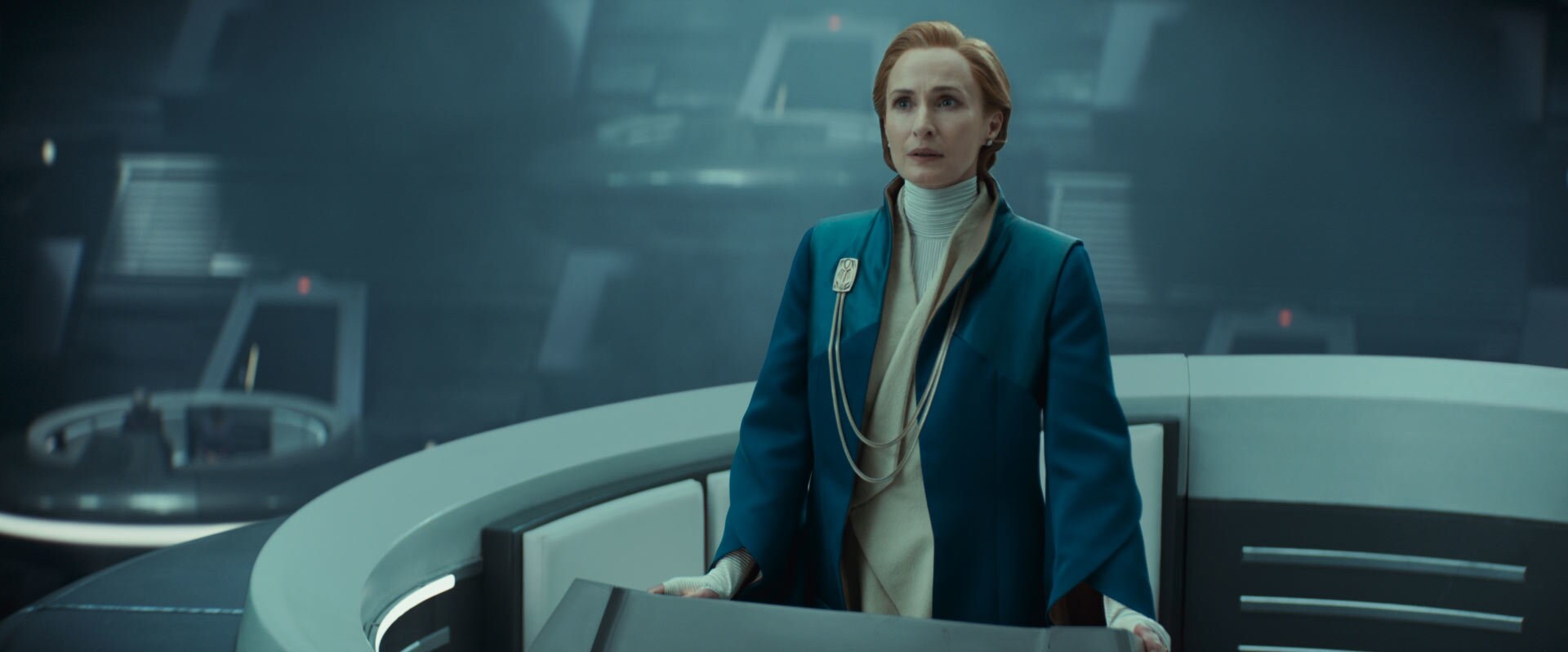
“She speaks on behalf of all those people being murdered by the state,” said O’Reilly. “She implicitly understands the violence that is being perpetrated and performed. And that it will come to her. And that it will come to all those that she knows and loves.”
Andor’s focus on people’s home lives, their heritage, their cultures helped to ground the words in Mon’s speech. “The detail in those Ghorman episodes, you feel like you've known this whole culture forever,” says O’Reilly. “I feel like I can talk to someone on the street about them. And so the loss of that allows for a depth or a weight that is carried that makes sense. And so when the moment came for Mon Mothma to speak, it was vital for me that I was able to hold those civilizations forward and hold those people and that pain forward and perhaps to give an understanding of who Mon Mothma is much later. And that was really my driving force for this whole season. And I think it's the way George Lucas set it up in the very first film, telling a very political story through very personal relationships.”
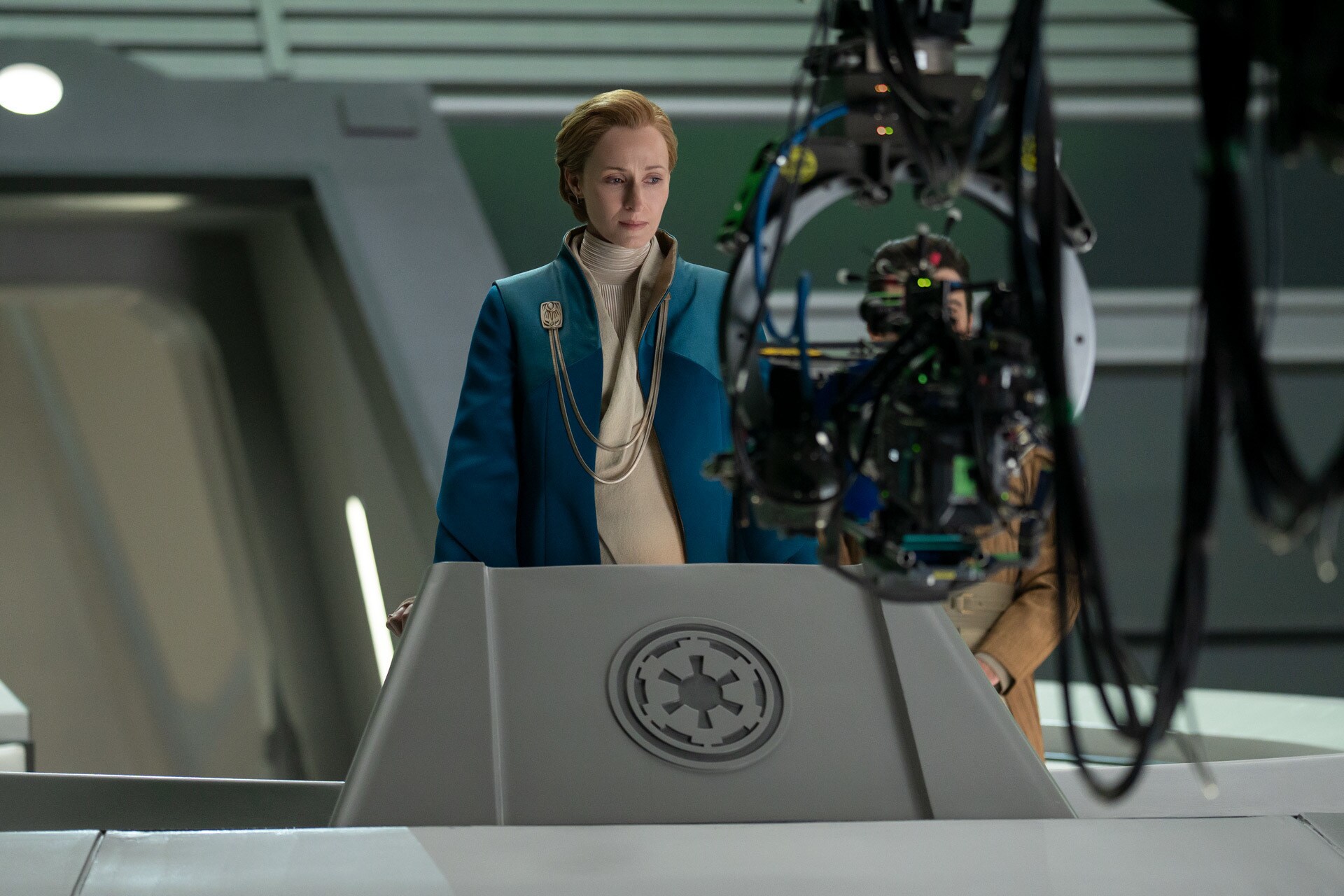
While in the original script Mon’s speech was split up into different parts as the episode would cut from Mon to other characters while she was speaking, O’Reilly and the showrunner, along with episodic writer Dan Gilroy, agreed that it was important for her to deliver a full, uninterrupted speech on camera. “And that came out of a generosity of a creative partnership that doesn't happen very often,” noted O’Reilly. “I stood up and I gave the whole speech, and the whole speech now exists in the piece and that's very special. It's an understanding of how an actor likes to work, the generosity of taking the time to do that, a director understanding the actor who understands the writer.”
After Mon’s speech, she and Cassian Andor, who Luthen sent to extract her from Coruscant, have to make a run for it. Which gave O’Reilly another chance to show a new side to her character. “I was just so thrilled that she got to run! I did think it made sense…that she wouldn’t be good at it. She’s not Vel. She’s not in the field. She’s a senator. She’s a politician. So, of course she’s not going to pick up guns and start shooting people. But it was great to see her have to run, have to use her body. I think she exorcises her whole cerebral cortex in the speech and all that’s left is to run.”

While there is more of Mon Mothma’s story to come in Andor’s last arc, the speech and escape provided a tense and fulfilling end to one chapter of Mon’s life and O’Reilly’s experience playing her. “I was so focused on [episode] nine and working really hard to chisel away at that because for me, that was the heart of Mon. So when I eventually saw it, I actually just cried afterwards. I just cried because it means so much when you're chiseling away at your own little thing and your own little studio and you're trying as an actor to really push and create and paint. And then when I saw it, I was so deeply grateful that I was able to be a part of it.”

